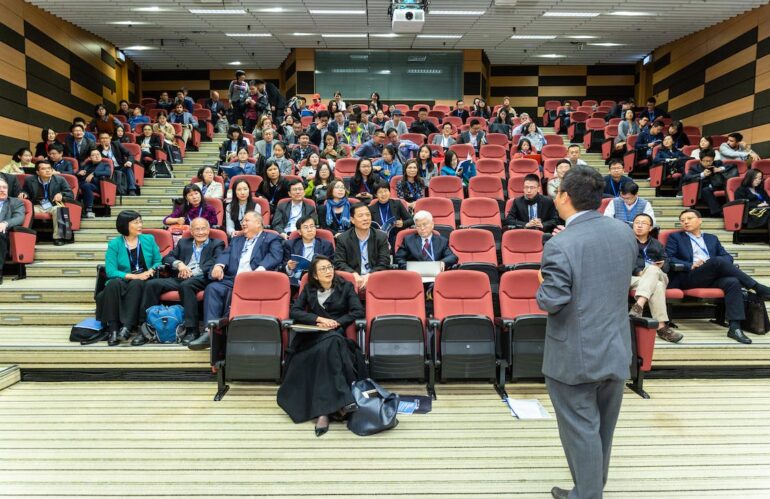In today’s fast-paced world, technology serves as the cornerstone of progress and innovation across various sectors; higher education is no exception. Institutions need companies willing to work just as quickly as technology advances. The integration of tech platforms into universities has become increasingly crucial, revolutionizing traditional systems and enhancing overall efficiency. Among the myriad of …
Tag: universities
Why Integrating your Course Evaluations with your University’s LMS is Crucial
Institutions are constantly striving to enhance the quality of teaching and learning experiences for students and educators alike. One indispensable tool in this pursuit is the course evaluation platform, which serves as a crucial feedback mechanism for assessing the effectiveness of courses and instructors. However, the full potential of such platforms can be best realized …
SmartEvals Introduces SmartHowl: the Only Mass Notification System Designed Specifically for Universities
The quest to enhance student learning experiences is a never ending journey with ceaseless upgrades. Universities, as bastions of knowledge and innovation, are continually seeking ways to engage students effectively, gather valuable feedback, and streamline communication channels. Today, we’re thrilled to announce a groundbreaking advancement in this pursuit: the unveiling of a new software solution …
Key Features for any Course Evaluation System
In the ever dynamic plains of higher education, the importance of gathering feedback from students to assess teaching effectiveness and improve course quality cannot be overstated. An effective online course evaluation system serves as a powerful tool for institutions to collect, analyze, and act upon valuable feedback from students. Let’s explore some of the best …
Transforming Higher Ed: SmartEvals’ Success Stories at Edgewood College and Spelman College
SmartEvals continues to make waves in changing institutions of higher education’s experiences during their end-of-semester evaluations. Through innovative strategies and tailored customization, the company has not only addressed the challenges faced by many schools, but has significantly enhanced the evaluation experience for both students and faculty. Let’s delve into the success stories of two universities, …
Navigating Mid-Semester Stress
As the midpoint of the semester approaches and the anticipation of spring break looms, university students often find themselves grappling with increased stress levels and mounting workloads. Balancing coursework, exams, extracurricular activities, and personal commitments can feel overwhelming, but with the right strategies in place, students can effectively manage their stress and stay on track …
Leveraging Course Evaluations for Effective Curriculum Development in Higher Education
The pursuit of academic excellence is an ongoing journey, with curriculum development playing a pivotal role in shaping the learning experiences of students. Amidst this pursuit, course evaluations emerge as invaluable tools that not only assess the effectiveness of teaching but also serve as a compass guiding faculty members in refining and enhancing their courses. …
Navigating Financial Aid and Scholarships
A Guide for Students With the astronomical costs of higher education, many students and their families turn to financial aid and scholarships to help alleviate the financial burden of pursuing a college degree. Understanding the various options available and navigating the application process can be daunting. However, with careful planning and research, students can find …
The Power and Purpose of Academic Conferences
Academic conferences serve as vital hubs of knowledge exchange, collaboration, and professional development within the academic community. These gatherings bring together scholars, researchers, educators, and students from diverse disciplines to share insights, discuss emerging trends, and foster meaningful connections. Let’s delve into the significance of academic conferences, exploring their benefits, key components, and tips for …
Educational Technology for Faculty Empowerment
In the ever evolving landscape of education, the integration of educational technology has taken a larger role in shaping engaging and effective learning environments. University faculty, as key drivers of this transformation, are often on the lookout for innovative tools to enhance their performances as educators. We’ll explore options for university faculty when choosing educational …










